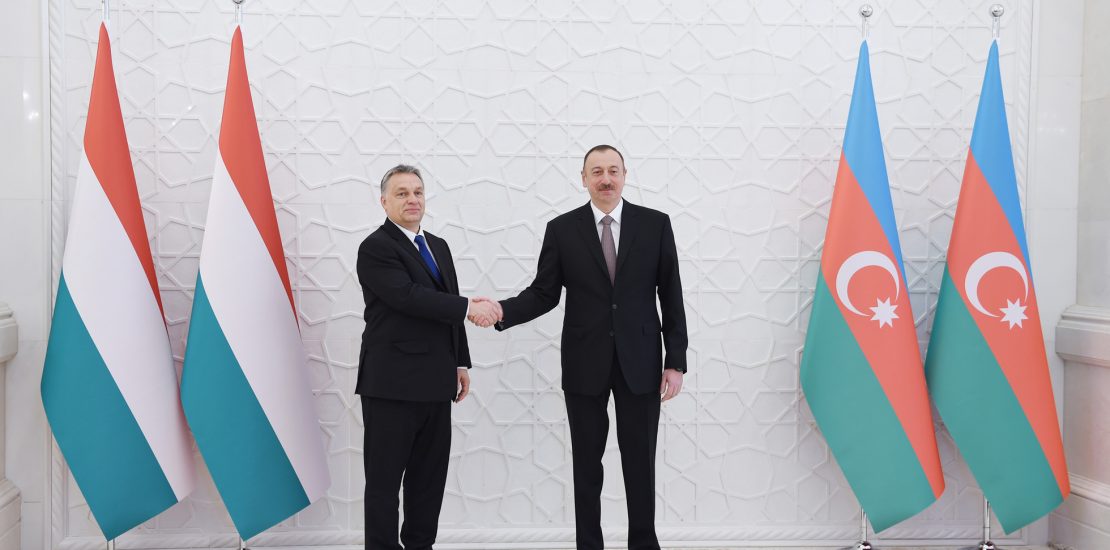- 6 July, 2022
- Foreign Policy

Hungary has been ruled by Prime Minister Viktor Orbán and his conservative Fidesz party since 2010. During Orbán’s leadership, Hungary has become less democratic and is often considered the most authoritarian of the European Union member states.
According to Human Rights Watch, Orban has politicized the Hungarian courts, weakened the independent press and civil society, put an end to academic freedom and encourages xenophobia. Orban himself has described Hungary as an “illiberal democracy”. According to the 2019 democracy index of The Economist Intelligence Unit (EIU), Hungary is a “flawed democracy” and occupies one of the lowest positions among EU member states.
According to the 2020 report of the “Reporters Without Borders” on press freedom, Hungary ranks second from the bottom among EU countries (89th in the world). Only Bulgaria (111th) has a worse index of press freedom. Orbán’s government also removed one of Europe’s leading universities from the country, the Central European University (CEU), which moved from the Hungarian capital Budapest to the Austrian capital Vienna in 2019 due to political pressure.
The campaign against civil society by Orbán’s government is also quite strong. Just like dictatorial countries such as Turkey and Azerbaijan, Orbán’s government put pressure on the “Open Society Foundations” founded by George Soros, as a result of which it stopped its activities in Hungary.
Orbán’s foreign connections
In foreign policy, Orbán has established close ties with authoritarian leaders of several countries, such as Turkish President Recep Tayyip Erdogan, Russian President Vladimir Putin, and former US President Donald Trump. The President of Azerbaijan Ilham Aliyev is also among them.
Orbán also has good relations with the Turkic Council. In October 2019, Orbán participated in the Turkic Council summit in Baku, where he announced that Hungary can serve as a bridge between the Turkic countries and the EU. Due to its close ties with Turkey, Orban’s government twice opposed Greece’s initiative to impose EU sanctions against Turkey in October and December 2020.
Orban-Aliyev connections
Hungary, like many other European countries, views Azerbaijan primarily as a source of natural gas. Orbán visited Azerbaijan several times in his position as the Prime Minister of Hungary. For the first time, in September 2010, Orban took part in the Azerbaijan-Georgia-Romania gas pipeline project conference in Baku. Orbán visited Azerbaijan for the second time in June 2012 and had a face-to-face meeting with Aliyev. In October 2014, Aliyev and Orbán signed documents on strategic partnership. Orban also visited Azerbaijan in March 2016 and October 2019.
Ramil Safarov’s extradition and possible motives
Relations between Azerbaijan and Hungary received international attention on August 31, 2012, when Ramil Safarov, who had killed Armenian officer Gurgen Margaryan with an axe in 2004, was secretly extradited from Hungary to Azerbaijan. This step was condemned internationally, and the then President of Armenia Serzh Sargsyan announced that Armenia was breaking diplomatic ties with Hungary. “It happened because the authorities of Hungary, a member of the European Union and NATO, entered into a deal with the authorities of Azerbaijan,” Sargsyan said at that time.
Novruz Mamadov, head of the International Relations Department of Aliyev’s Office, confirmed that Safarov’s extradition was carried out through secret negotiations, which were conducted under Aliyev’s supervision, and the final decision on extradition was made during Orban’s visit to Azerbaijan.
Due to the extradition of Safarov, Orbán was criticized by the Hungarian opposition, and the largest opposition party demanded his resignation. Orbán did not express remorse. Moreover, he declared that the extradition of Safarov was a “right and just” decision. “Hungary should pursue its own interests, not those of Armenia or Azerbaijan,” he said.
Orban probably meant the financial resources he received from Azerbaijan, which supposedly influenced the decision to extradite Safarov. In 2017, investigative journalists found out that during the period of Safarov’s extradition, USD 7 million were transferred from Azerbaijan to the Hungarian MKB bank. According to the investigation, the bank account belongs to the son of the Deputy Prime Minister of Azerbaijan. The extradition decision was probably also influenced by Azerbaijan’s willingness to buy Hungarian bonds worth EUR 2-3 billion.
Support to Azerbaijan in the Nagorno Karabakh issue and deepening economic ties
During the 44-day war, Hungary was the only EU member state that showed an undisguised biased attitude. On October 1, 2020, the Ministry of Foreign Affairs of Hungary announced that the country supports Azerbaijan’s territorial integrity as a fundamental principle of international law. The Hungarian Foreign Ministry made a similar statement earlier, in mid-July 2020, during the border clashes in Tavush.
Two months after the end of the war, the Minister of Foreign Affairs of Hungary, Peter Szijártó, after a conversation with the Minister of Social Affairs of Azerbaijan, announced that Hungarian companies are ready to participate in the reconstruction of the territories affected by the war. “Hungary has always supported the territorial integrity of Azerbaijan and the negotiated resolution of conflicts,” said Szijjártó and added that the Hungarian government provided a grant of EUR 25,000 to Azerbaijan for demining works.
In January 2021, the Exim Bank of Hungary opened a credit line worth USD 100 million to support Hungarian companies in reconstruction projects in the regions adjacent to Nagorno Karabakh.
However, the trade between Hungary and Azerbaijan is quite modest. According to the Hungarian Statistical Agency, in 2021 the trade between the two countries amounted to only USD 38 million and is almost entirely one-sided. Last year, goods worth USD 37.2 million were exported from Hungary to Azerbaijan.
At the same time, Hungary hopes to start buying natural gas from Azerbaijan in the near future. Foreign Minister Szijjártó announced in March 2021 that Hungary is interested in joining the Trans-Adriatic gas pipeline, which delivers gas from the Caspian Sea to Italy. Szijjártó reported that Hungary is negotiating to buy gas from Azerbaijan by the end of 2023. He also expressed hope that Azerbaijan will become the main gas supplying country for Europe.
Atonement for sins?
Ten years have passed since Armenia severed diplomatic relations with Hungary after the extradition of Safarov. However, recently, the Hungarian government has taken some steps in the direction of improving relations with Armenia.
In November 2020, Tristan Azbey, the State Secretary for the Aid of Persecuted Christians and the Hungary Helps Program, announced that Hungary plans to donate USD one million to the Armenian Apostolic Church in the Middle East. In particular, Hungary supported the restoration of the damaged school of the Armenian-Apostolic Church in Syria, the restoration of the Armenian church in Zakho, Iraq, and provided assistance to Armenian Catholic families in Lebanon.
In December 2021, Hungary stood out with two significant steps. On December 29, five Armenian prisoners of war returned from Azerbaijan through the mediation of Hungary. And the next day it was reported that Hungary donated 100,000 doses of vaccine to Armenia as part of the fight against COVID-19.
It is noteworthy that in the post announcing the return of five Armenian prisoners of war, Hungarian Foreign Minister Szijártó did not hesitate to praise Azerbaijan. “Today, Azerbaijan has decided to release five Armenian soldiers, thereby proving its loyalty to the stability and security of the region,” he wrote.
Hovhannes Nazaretyan
Union of Informed Citizens NGO




